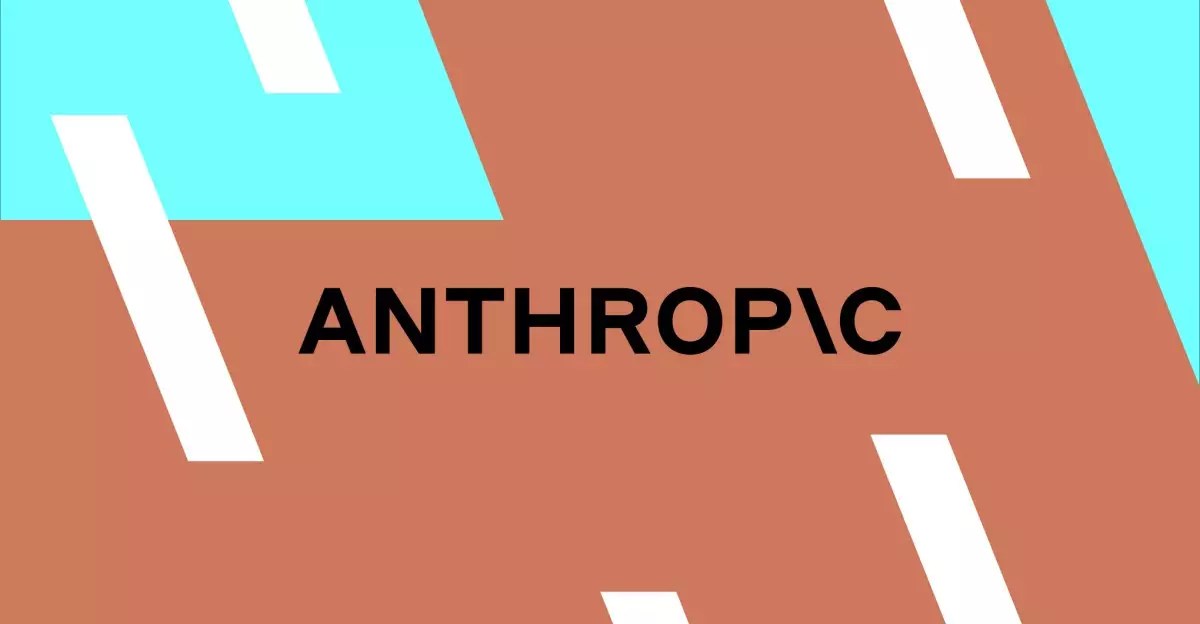In a continuous effort to revolutionize the coding landscape, Anthropic has recently unveiled its innovative model dubbed Claude 3.7 Sonnet, marking a significant stride in the development of artificial intelligence tools. This model is not merely an updated version of its predecessor; it represents a hybrid reasoning framework that enhances its ability to tackle complex problems, especially in areas such as programming, mathematics, and multifaceted problem-solving. Instead of simply refining existing capabilities, Anthropic aims to establish a paradigm shift in how AI interacts with human programmers, emphasizing collaboration over mere task execution.
Accompanying the introduction of Claude 3.7 Sonnet is the beta rollout of Claude Code, an “agentic” coding tool that reimagines the role of AI in software development. Unlike traditional coding assistants that typically offer suggestions or corrections, Claude Code is envisioned as an interactive partner. This tool can autonomously search through codebases, edit files, and even push updates to repositories like GitHub. Its ability to operate through command line interfaces allows it to seamlessly integrate into existing development workflows, redefining the AI’s functionality from a passive assistant to an active coding collaborator.
The proactive nature of Claude Code signifies a departure from conventional AI systems and aligns with emerging trends in the tech industry, where the need for collaborative AIs becomes paramount. The tool’s design reflects an understanding of the daily challenges faced by developers, emphasizing efficiency and empowerment rather than mere automation.
The Cost Structure and Accessibility
One of the notable features of Claude 3.7 Sonnet is its accessibility. Priced similarly to the prior model at $3 per million input tokens and $15 per million output tokens, the new version remains within a competitive pricing range. This strategic pricing aims to retain existing users while also attracting new developers seeking to enhance their coding capabilities. Claude 3.7 Sonnet is available through various platforms, including the Claude app, Anthropic’s API, Amazon Bedrock, and Google Cloud’s Vertex AI, ensuring widespread usability across different environments.
Anthropic’s choice to make this advanced model accessible tells a larger story about its vision for democratizing AI. The company recognizes that a robust AI can serve as a springboard for innovation, particularly for independent developers and smaller firms lacking extensive resources.
Reports from within Anthropic detail substantial performance improvements in Claude 3.7 Sonnet, particularly in its handling of coding tasks, legal analysis, and financial computations. Dianne Penn, the product research lead, emphasizes that this model delivers faster and more accurate responses by allowing developers to customize the timeframe for replies. The flexibility to dictate response times enhances user experience and signifies Anthropic’s commitment to adaptability in AI.
The real-world testing conducted by Anthropic employees showcases the model’s prowess in tangible applications, such as developing front-end web designs and creating interactive game environments. These experiments reflect a comprehensive understanding of the practical applications of AI, reinforcing the notion that such tools are not intended to replace human creativity but rather to enrich it.
As the artificial intelligence race accelerates, Claude 3.7 Sonnet positions Anthropic favorably in an increasingly competitive field. The ability to outperform previous models in day-to-day tasks raises pertinent questions regarding the future of AI in coding and other domains. With the likes of OpenAI also developing sophisticated models, the industry appears to be gravitating towards more holistic solutions where one model incorporates various functionalities.
The advancements made with Claude 3.7 Sonnet hint at a future where different models converge into singular applications capable of tackling multifaceted tasks. This progression suggests a significant shift beyond isolated advancements to a more integrated approach to AI development.
The release of Claude 3.7 Sonnet and Claude Code signifies a transformative period in AI development, aligning with the growing demand for versatile and interactive coding tools. As businesses and developers navigate the complexities of coding tasks, the collaboration between human intellect and artificial intelligence promises to define the next chapter in technological innovation. By embracing these changes, we can eagerly anticipate a future where AI serves as a cornerstone of creativity and productivity in the programming world.


Leave a Reply